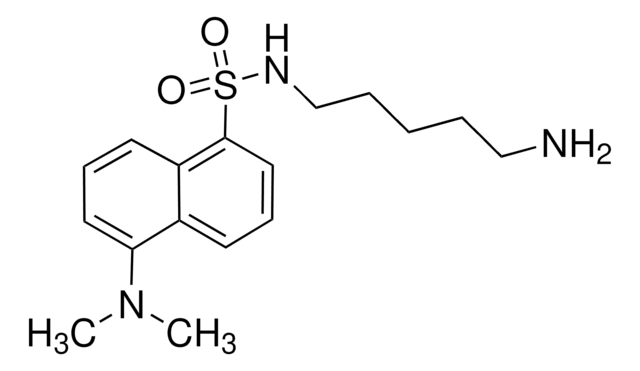158550
Acridine Orange hemi(zinc chloride) salt
Dye content 85 %
Synonym(s):
3,6-Bis(dimethylamino)acridine hydrochloride zinc chloride double salt, 3,6-Bis(dimethylamino)acridinium chloride hemi(zinc chloride salt), Basic Orange 14
About This Item
Recommended Products
form
powder
Quality Level
composition
Dye content, 85%
solubility
H2O: 1 mg/mL, clear, orange to very deep orange
λmax
489 nm
application(s)
diagnostic assay manufacturing
hematology
histology
storage temp.
room temp
SMILES string
Cl[H].Cl[H].Cl[Zn]Cl.CN(C)c1ccc2cc3ccc(cc3nc2c1)N(C)C.CN(C)c4ccc5cc6ccc(cc6nc5c4)N(C)C
InChI
1S/2C17H19N3.4ClH.Zn/c2*1-19(2)14-7-5-12-9-13-6-8-15(20(3)4)11-17(13)18-16(12)10-14;;;;;/h2*5-11H,1-4H3;4*1H;/q;;;;;;+2/p-2
InChI key
RAHGLSRJKRXOSY-UHFFFAOYSA-L
Looking for similar products? Visit Product Comparison Guide
Application
Biochem/physiol Actions
Signal Word
Warning
Hazard Statements
Precautionary Statements
Hazard Classifications
Muta. 2
Storage Class Code
11 - Combustible Solids
WGK
WGK 3
Flash Point(F)
Not applicable
Flash Point(C)
Not applicable
Personal Protective Equipment
Choose from one of the most recent versions:
Already Own This Product?
Find documentation for the products that you have recently purchased in the Document Library.
Customers Also Viewed
Related Content
Nancy-520 for DNA Detection and Quantitation
Our team of scientists has experience in all areas of research including Life Science, Material Science, Chemical Synthesis, Chromatography, Analytical and many others.
Contact Technical Service












